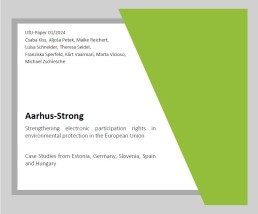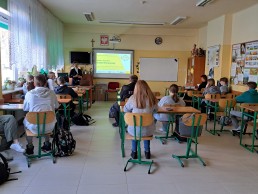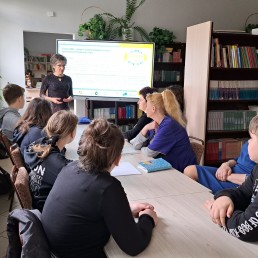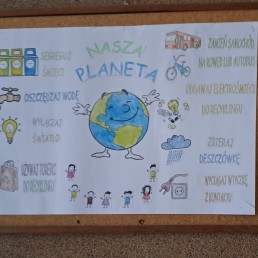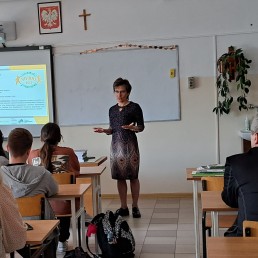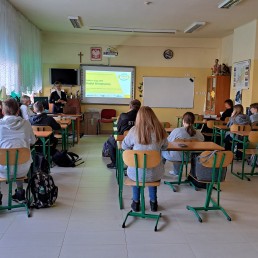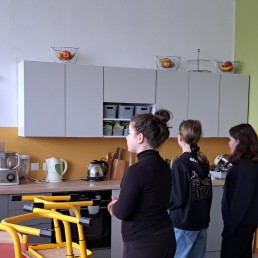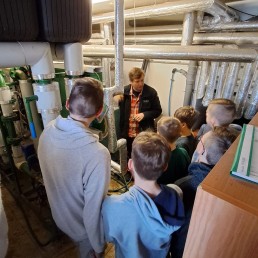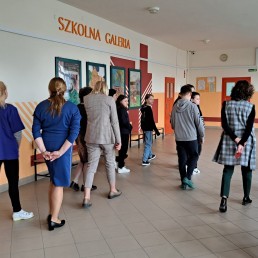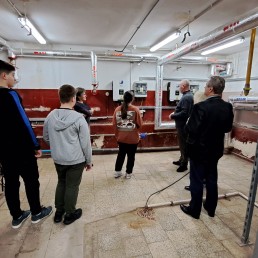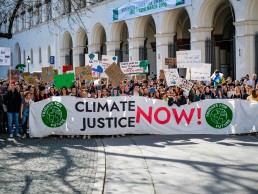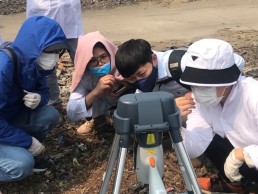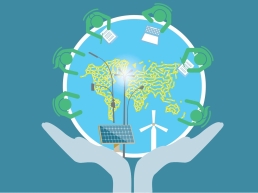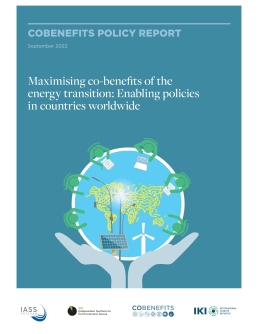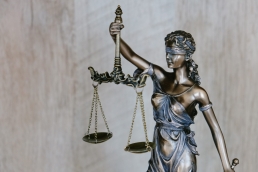UfU-Projects are tackling environmental challenges of farmers in Kazakhstan
UfU-Projects are tackling environmental challenges of farmers in Kazakhstan
On 17th of July 2024, the Independent Institute for Environmental Issues (UfU) in Berlin was honoured to host a delegation from Kazakhstan, including Mr. Aslan Abdraimov, the Vice Minister of Water Resources and Irrigation, and Mrs. Aziza Dyussenova, the First Secretary at the Embassy of Kazakhstan in Germany. This visit was a significant step forward in working together on critical environmental challenges in Kazakhstan.
During the meeting, UfU representatives, including Dr. Michael Zschiesche, Sami Çeltikoğlu, and Dr. Arne Reck, provided a comprehensive overview of ongoing and planned projects in Kazakhstan and discussed environmental challenges that Kazakhstan is facing now and in the future. The discussions focused on the UfU-projects ZIVIKLI, Projekt4646 and CarbonIQ and their scientific findings. These projects are contributing uniquely to sustainable agricultural practices and climate change adaptation in Kazakhstan.
Why is UfU working in Kazakhstan?
Kazakhstan plays an important role in the global food supply chain. Agriculture is a critical element in Kazakhstan’s economic, social and environmental development, with over 79.3% of the country’s land area devoted to agricultural production – approximately 29,669,700 hectares of arable land (World Bank, 2021; Macrotrends, 2020). The agricultural production of Kazakhstan is producing gigantic exports of wheat and flour. The Food and Agriculture Organisation (FAO) predicts that by 2030 the combined wheat production of Kazakhstan, Ukraine and Russia will account for 25-30% of global wheat exports, up from 21% today. Kazakhstan’s role as a food supplier is especially important for the Middle East and North Africa and therefor important for their food supply.
Due to climate change, Kazakhstan’s agriculture is facing challenges such as drought or flooding and a change in the average annual temperature, which could jeopardise food production in the future, if Kazakhstan is unable to adapt its agriculture to the changing environmental conditions. At the same time, Kazakhstan’s farmers are looking for alternative ways to produce their products environmental friendly and with less impact for soil and nature as Kazakhstan like other countries has set a target to reduce its reliance on fossil fuels from over 80% to around 50% by 2050 (Karatayev et al. 2022). The country also aims to achieve carbon neutrality by 2060 (World Bank, 2023). As UfU has a wide experience in restauration of soil and soil protection, our aim is to support farmers in Kazakhstan tackle those challenges and to contribute to the security of the world’s food supply while securing an environmental friendly agriculture.
The Water Resources and Irrigation Ministry of Kazakhstan
The provision of water for agricultural industry is one of the most critical points if it comes to securing the food production. Kazakhstan faces significant challenges such as water scarcity for agriculture, frequent droughts, and occasional severe floods due to changing climate conditions. Therefore, a year ago Kazakhstan founded a new Ministry, the Ministry of Water Resources and Irrigation. Unlike Germany, which does not have a dedicated ministry for water resources, the ministry plays a critical role in managing the country’s water resources and practices to cope with climate extremes. To support this, UfU provides strategic insights from its projects for a robust framework to implement sustainable agricultural practices. The Ministry is keen to use the data and strategies developed through these projects to inform national policies and implement practical solutions on the ground.
Visit of Kazakhstani Students
On 18th of July 2024, UfU also hosted students with an agricultural background from various Kazakhstani universities as part of Apollo e.V.’s “Agricultural Internship Program in Brandenburg.” The students were briefed on the impact of climate change on agriculture and the innovative solutions being implemented through UfU’s projects. The session, led by Sami Çeltikoğlu and Dr. Arne Reck, sparked significant interest in the CarbonIQ project, particularly its potential to transform agricultural practices in Kazakhstan.
The visit of the Kazakhstani delegation to UfU marked a significant step towards strengthening environmental cooperation between Kazakhstan and Germany. The in-depth discussions and project insights provided a solid foundation for future cooperation aimed at improving sustainable agricultural practices and climate resilience in Kazakhstan. UfU remains committed to supporting Kazakhstan in its journey towards environmental sustainability and climate adaptation.
UfU Projects in Kazakhstan
Projekt4646
The aim of “Project4646” is to conduct a feasibility study on the topics “climate change in agriculture, food safety and know-how transfer between Germany and the Republic of Kazakhstan” and comprises two study phases. In the first step, a preliminary study on the perception of climate change by farmers, political decision-makers and agricultural stakeholders is carried out by interviewing focus groups. In the second step, a direct survey of farmers regarding their perception of the climate crisis will be conducted.
Projekt CarbonIQ
The CarbonIQ pilot study aims to provide a basis for decision-making on the feasibility of carbon farming in Kazakhstan as an important environmental protection and climate change mitigation technology. Specifically, the CarbonIQ project aims to assess the carbon storage potential of Kazakh soils, estimate their capacity and analyse important impacts such as the promotion of biodiversity. “CarbonIQ” also supports economic sustainability by unlocking the potential of soil carbon storage for farmers. Farmers can thus see first-hand how sustainable farming practices can benefit both nature and their own incomes.
UfU study: State of digital public participation in environmental issues in five EU Member States
Together with partners from Estonia, Hungary, Slovenia and Spain, we analysed the state of digital public participation in environmental issues in five EU Member States and the impact of the COVID-19 pandemic.
Digital public participation in environmental issues is an essential element of modern democracy, as effective public involvement leads to more informed decisions that strengthen environmental protection. At present, however, the opportunities for digital participation are only utilised in a rudimentary and fragmented way. Strengthening digital participation procedures by public authorities in EU Member States can therefore lead to more robust and comprehensive public participation in general. The aim of this study is to assess the current state of digital public participation in five EU Member States in order to create an initial knowledge base. In the future, the information gained can be used to improve the digital capabilities and capacities within authorisation authorities.
The study analyses the different uses of digital public participation procedures in the EU in relation to environmental impact assessment (EIA). It becomes clear that there is no common understanding of how to regulate and use digital tools to promote and facilitate public participation. However, this comparative approach can encourage Member State authorities to adopt best practices from the countries presented and learn from existing shortcomings.
Suggestions for improvement
After assessing the situation in the five countries analysed, the following suggestions for improvement for effective digital public participation emerged.
EIA portals
- Establishment of a standardised national EIA portal.
- All projects and their relevant documents are published on the EIA portal.
- Non-technical summary of the project and the environmental impact study are available
- The documents are downloadable in a user-friendly format.
- The documents are complete and organised in a predefined filing system with easily identifiable file names.
- Search function to find cases, documents and text within documents.
- Searchable archive function to find information on completed projects.
- Automatic notifications about projects in a specific area or field of interest (e.g. via email or app).
- The EIA portal allows direct comments on projects without a lengthy registration process.
- Responses to participants’ comments are public and easily accessible online.
Public hearings
- Accessible online and offline (hybrid).
- Online hearings can be set up without the prior consent of all participants.
- The public concerned can participate in the hearing at any time.
General
- Specific separate legislation on electronic public participation.
- The standards for electronic public participation must be as high as those for face-to-face participation.
- Funding of pilot projects.
- Dissemination of information via social media.
County reports on civil society participation in climate policies now available
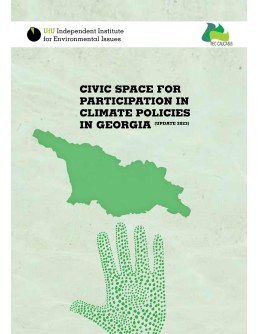
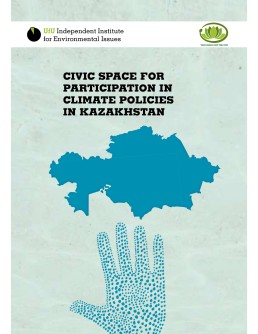
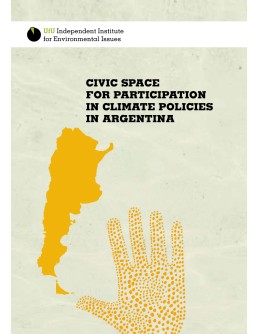
27. November 2023
Country reports on civil society participation in climate policies now available
Together with local research teams, the Independent Institute for Environmental Issues has conducted eight country studies to investigate the environment and conditions for climate-related participation of civil society. The first reports are now available.
This year, the UN Climate Change Conference (UNFCCC COP 28) is taking place from 30 November until 12 December 2023 in Dubai. 2023 marks the year of the first Global Stocktake, focusing on assessing the overall progress made by the parties to the Paris Agreement in addressing the climate crisis and limiting global warming towards “well below 2°C above preindustrial levels and pursuing efforts to limit the temperature increase to 1.5°C above pre-industrial levels”.
The gap between the urgent need to drastically reduce emissions and the current implementation falls far short. The current policies in place imply that the global temperature is expected to rise by 2.8°C by the end of this century. Even with the full implementation of the current pledges the temperature rise is projected to 2.4-2.6°C. Climate Scientists agree that above a warming of 2°C, the probability of reaching tipping points becomes increasingly likely, leading to irreversible and accelerated changes in the climate system. The impacts of the climate crisis continue to escalate, faster and more severe than expected, disproportionately affecting the most vulnerable specifically in countries from the global South. It is crucial to fully address the gaps and the implementation of current policies to safeguard the well-being of all people and the planet. Within the framework of the Paris Agreement, Nationally Determined Contributions (NDCs) are a key tool to ratchet up climate protection. Within the process of the development and review of the NDCs it is legally binding and crucial to involve civil society actors as they are watchdogs and advocates for a fair socio-environmental transformation and know the local circumstances and needs of civil society.
Together with local research teams, the Independent Institute for Environmental Issues conducted eight country studies to investigate the environment and conditions for climate-related participation, such as the legal framework for participation, as well as concrete practices of participatory policy making in Georgia, the Republic of Moldova, Kazakhstan, Ukraine, Colombia, Argentina, Chile and Costa Rica between autumn 2022 and spring 2023. The analysis explores how national civil society is being involved in political processes related to climate policies, including processes under the Paris Agreement. The focus thereby lies on organised groups, rather than individuals and the general public. Are civil society organisations involved in the development of climate-relevant national plans, strategies and other document? Are there good examples or good approaches of participation that enable civil society actors to effectively influence national political processes and raise ambition in climate matters? The studies also identifies concrete country-specific barriers that hamper meaningful, effective and long-term participation, and gives advice for overcoming these barriers.
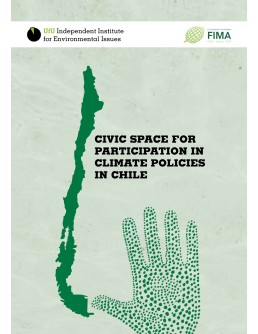
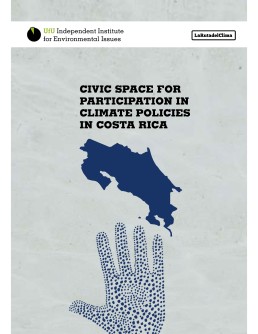
First Climate Checks in Polish Schools
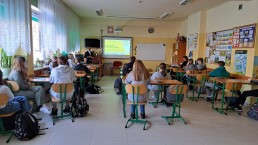
31. März 2023
First Climate Checks in Polish Schools
Poland has started with the first climate checks in schools in the EUKI project Visions 2045 – Schools as Drivers to Climate Neutrality in Cities. The project’s aim is to support schools in Bulgaria, Poland and Slovenia on their way to climate neutrality.
Climate neutrality in schools – Is this possible?
Climate neutrality is a rather complicated concept, especially for schools. Schools are complex systems with a lot of different user groups. Teachers, pupils, facility management, service personal, parents, coaches – they all use the building for different purposes. Therefore, it is difficult to apply the concept of climate neutrality to schools. Immediately, questions come to mind of when school starts and when it ends:
- Is the school trip included in the concept of a climate neutral school?
- Does learning material need to be climate neutral?
- If the cafeteria serves food, how do we apply climate neutrality to the concept of school food?
It is relatively clear, that those questions can not be left to be answered by teachers, whose primary job it is to teach. Therefore, schools need professional support in creating an individual action towards climate neutrality that includes the specific needs of the school, the building and the people who are using the school. The Visions 2045 project, implemented by the Independent Institute for Environmental Issues in Berlin, accompanies schools in Bulgaria, Poland and Slovenia on their way to climate neutrality.
Climate checks in schools are the beginning of the project
The start for each school is an analysis of the school’s carbon footprint. Data on heating, electricity, water use, mobility, school meals and waste will help the school community and project team to calculate the carbon footprint of each school.
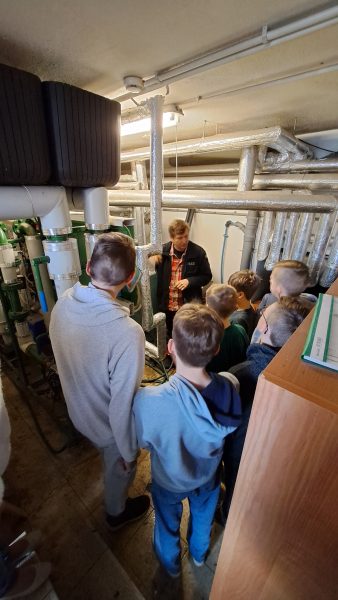
The analysis of this carbon footprint is called climate check in this project. The pupils are in included in this analysis and are therefore part of the identification of the school’s need for resources. This is especially important since the project also aims to educate children about the importance of one’s own action and its effect on the need and consumption of resources. A part of the climate check is also the inspection of the school’s heating system with the facility management. Children normally don’t have access to this part of the school. Though, this is not only important to gain a deeper understanding of the functionality of a building, but also to teach children the different kinds of energy resources and our energy grid.
Poland starts the project with the climate checks
Two schools in Minsk, Poland have now officially started the project with the climate checks, conducted the Association of Municipalities Polish Network (PNEC) The schools are excited, that this is the starting point of their individual way to climate neutrality. Already, many possibilities on energy saving and reduction of resource consumption were identified during the first climate checks. The pupils raised a lot of questions and are already starting to develop about how to make the school more efficient. Posters were created and teachers discussed the ideas with the pupils during class.
More protection for environmental defenders - UN Special Rapporteur visits UfU
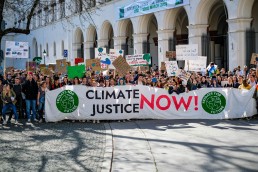
09. March 2023
Environmental activists need better protection – UN Special Rapporteur on Environmental Defenders discusses the situation for environmental activists in Germany and the world with UfU and activists.
Environmental defenders polarize. Anyone who does research on climate protection, protests for change in public, works on a voluntary or full-time basis on climate change, is also voicing criticism of the system we have had up to now. For climate and environmental protection cannot do without debates about fundamental changes in behaviour and systems. However, the people who voice theses issues see themselves exposed to increasing aggression worldwide. In its report “Decade of defiance – Ten years of reporting land and environmental activism worldwide”, the NGO Global Witness reports 200 murders of environmental activists in 2021[1], most of them in Mexico, Colombia and Brazil.
But also in Germany and Europe, environmental activists are facing increasing pressure. From open violence on the streets and tougher police action, comparisons with terrorist organizations in politics, to targeted defamation campaigns against scientists[2] and withdrawal of non-profit status – the tone is getting harsher and civil society is experiencing an increasing restriction of its space. Today, anyone who publicly campaigns for the environment has to reckon with numerous attacks against their own person and family in public and on the internet. Female activists, as shown by the recently won trial of Fridays for Future Germany activist Louisa Neubauer against Akif Pirinçci[3], also experience a lot of sexualized hatred, humiliation and violence.
As polarising as protests and actions by environmental activists may be, it is often ignored that, unless otherwise documented, environmentalists exercise fundamental rights to free research, free expression and assembly in the course of their activities. Those who engage in research or protest for environmental protection and nature conservation should not have to fear hate speech, defamation, violence or murder.
The United Nations, or more precisely the United Nations Economic Commission for Europe (UNECE), also views this in the same way. The parties to the Aarhus Convention have decided to appoint a Special Rapporteur on Environmental Defenders to analyse the situation and provide assistance to environmental defenders under threat in specific cases. Dr. Michel Forst, former UN Special Rapporteur on the situation of human rights defenders, was elected in July 2021.
On his inaugural visit to Germany as the first UN Special Rapporteur on environmental protection, Dr. Forst met with various environmental organizations and activists at UfU headquarters on 7 March 2023 to get a first impression of the situation in Germany. Representatives of Letzte Generation, NABU, BUND, Green Legal Impact and UfU reported on civil society engagement in Germany and the current situation.
Dr. Forst emphasized that during his mandate he would strive to improve the network between environmental organizations and human rights organizations and to provide a contact point for threatened environmentalists. This is made possible, among other things, by the fact that people can contact the Special Rapporteur directly online. If environmentalists contact the mandate with concrete allegations of repression, these cases are investigated and, if necessary, diplomatic steps are initiated after appropriate examination. With the help of publicly accessible reports, among other things, pressure is to be exerted on actors such as companies and governments to uphold the rights of environmentalists. If there is a concrete danger to the life and physical well-being of environmentalists, the mandate can also intervene directly in the countries and send delegations.
Civil disobedience will also play a role in Dr. Forst’s future work. The mandate aims to investigate the various new groupings working with civil disobedience and to record what legal implications the protesters in the various treaty countries expect from their forms of protest. Other points of focus for Dr. Forst are mentioned in the UNECE communication: UN Special Rapporteur on Environmental Defenders presents his vision for mandate to ensure protection under the Aarhus Convention.
UfU very much welcomes the appointment of Dr. Forst. Environmentalists must be protected more strongly worldwide. Even if Germany and Europe, with their numerous large and influential environmental associations, will not be the focus of the Special Rapporteur and should not be, in view of other trouble spots, we are also observing an increasing restriction of civil society here. One example of this is the recurring attempt to curtail the participation rights of citizens in new acceleration debates. Germany must set a good example for the world in protecting democratic values and rights and do everything to ensure that people can exercise their right to demonstrate, research, report and protest without being exposed to hatred, defamation and violence.
About the Aarhus Convention
The UNECE is the administrative headquarters of the so-called Aarhus Convention. The Aarhus Convention has been ratified by 47 Parties, including the European Union and all EU Member States, and is the first treaty under international law to give every person rights in environmental protection. The three main pillars of the Aarhus Convention are the right of public access to information on the environment, the right to participate in environmental matters and the right of access to justice in environmental matters. The Convention also obliges Parties to ensure that persons are not punished, persecuted or harassed in any way for exercising their rights under the Convention. The new Special Rapporteur is to monitor this in future and ensure that civil society can exercise these rights without hindrance.
[1] Hine (2022), Decade of Defiance – Ten years of reporting environmental activism worldwide.
[2] Jung & Naiv (2023), Energie-Ökonomin Claudia Kemfert (DIW) über System-Change – Jung und Naiv: Folge 629
[3] Hoppenstedt (2020), Was über mich geschrieben wird, ist schon krass, Spiegel-Interview mit Louisa Neubauer
Solutions to deal with soil contamination in Vietnam‘s recycling villages

06. March 2023
Many people link soil contamination and Vietnam first and foremost to the environmental and health impacts of Agent Orange use by American troops during the Vietnam War. However, apart from this special case, it is in Vietnam mostly the contamination caused by so-called recycling villages that has a particularly harmful effect on people and the environment. The processing of scrap metals for the production of steel that taking place in these sites often leads to the entry of heavy metals into the soil and (ground) water. Because recycling villages are still widespread in Vietnam, many people and large areas are potentially affected by them.
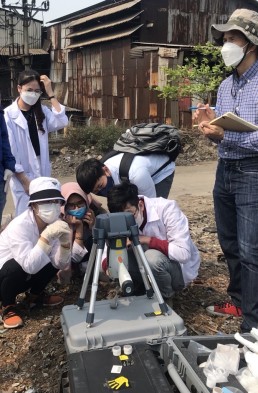
In Bắc Ninh province, Châu Khê village has been identified as a high risk source of contamination. In early March 2023, the CapaViet3 project team was on site to conduct further measurements and analyses together with Vietnamese experts, and to discuss solutions to protect residents, workers and the environment with local authorities.
The team was supported by 25 experts of environmental analysis from different Vietnamese provinces. They were trained by Prof. Dr. Tim Mansfeldt from the University of Cologne and the UfU team in the use of on-site analysis equipment for heavy metal detection in soils, and examined the waste and slag deposited around the village as part of their practical training.
With mobile x-ray spectrometers, samples could be analyzed directly at the illegal waste dump and in the laboratory. In addition to already known contaminants, a high concentration of lead was identified – a pollutant that is particularly dangerous to the health of children.
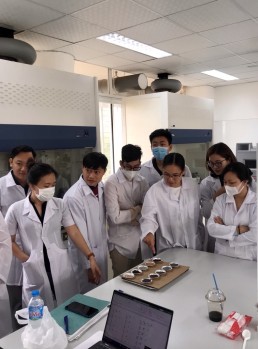
These worrying findings show once again how important it is that responsible authorities develop viable and feasible concepts to manage contamination and to secure recycling villages. A first step on the way to a remediation plan for Châu Khê was therefore the remediation workshop conducted by the CapaViet3 project at the 27th and 28th of February 2023. Representatives of environmental, financial and industrial authorities jointly discussed the existing challenges and talked about possible solutions. A presentation of possible remediation technologies is now followed by a prioritization and further elaboration of suitable measures.
The results of the workshops and, above all, the methodology for developing a suitable remediation plan will also be made available to other provinces in Vietnam. This supports public authorities in other provinces –in the management of contamination risks emanating from recycling villages and thus in the protection of the environment and public health.
Klimaschutz- und Energieprojekt an Oranienburger Schulen zum Schuljahr 2022/23
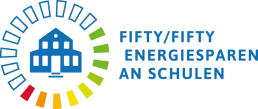
16. Dezember 2022
Klimaschutz- und Energieprojekt an Oranienburger Schulen zum Schuljahr 2022/23 gestartet
Pünktlich zu Beginn der Heizperiode im Schuljahr 2022/23 startet das auf 3 Jahre angelegte Klimaschutz- und Energieprojekt an Oranienburger Schulen gleich an 9 teilnehmenden Einrichtungen.
Berlins großer nördlicher Nachbar setzt damit ein wichtiges Zeichen zur richtigen Zeit, um Schulen mit pädagogischen Aktivitäten und technischen Optimierungsmaßnahmen fit zu machen für einen langen Energiesparwinter. Außerdem haben die Schulen die Möglichkeit, durch Vermittlung von Wissen im Rahmen der Schüler*innen-Workshops, Hausmeister- und Lehrkräfteschulungen unmittelbar praktisches und alltagstaugliches Energiesparwissen zu erhalten und auf diesem Wege eine nachhaltigere Zukunft einzuleiten.
Auf Beschluss in der Stadtverordnetenversammlung im Jahr 2021 soll mit dem Projekt die gesamtgesellschaftliche Relevanz der Themen Klimaschutz und Energie besser in den schulinternen Abläufen und Lehrplänen verankert und darüber in die Bevölkerung getragen werden. Federführend für die Planung und Umsetzung ist das Klimaschutzmanagement der Stadt Oranienburg, welches die sektorübergreifende Klimaneutralitätsstrategie der Stadt in Abstimmung mit den beteiligten Ressorts koordiniert und umsetzt.
Das Schulprojekt ist Teil dieser Strategie, die neben Schulen und Kitas auch die Energieversorgung für Verwaltungsgebäude, Privathaushalte und Gewerbe sowie auch die Verkehrssituation und das Abfall- und Ressourcenmanagement in den Blick nimmt. Damit ist das Projekt ein wichtiger Schritt auf dem Weg zur klimaneutralen Verwaltung und Stadtgesellschaft.
Neben der ursprünglichen Motivation aus den Schulen heraus, Nachhaltigkeitsthemen stärker in den Fokus zu rücken, soll auch ein Prämienmodell als Anreizsystem dienen.
Teilnehmende Einrichtungen:
- Comenius Grundschule
- Havelschule Grundschule
- Waldschule Grundschule
- Grundschule Friedrichsthal
- Grundschule Germendorf
- Grundschule “Friedrich-Wolf” Lehnitz
- Grundschule Sachsenhausen
- Neddermeyer-Grundschule Schmachtenhagen
- Jean-Clermont-Schule
Projektablauf
Bereits im abgelaufenen Schuljahr 2021/22 erfolgte die Abstimmung zwischen der Klimaschutzmanagerin der Stadt Oranienburg und dem UfU bzgl. Termin- und Ablaufplanung, Konkretisierung der Inhalte und Methoden sowie der teilnehmenden Schulen.
Zu Beginn des Schuljahres 2022/23 wurden dann alle Schulen über den Start des Projekts informiert, während gleichzeitig die Vorbereitungen liefen, sodass die tatsächlichen Auftakttermine, Energierundgänge und Schüler*innenworkshops pünktlich nach den Herbstferien beginnen konnten.
Ziele
- Initiieren und Begleiten von Unterrichtsprojekten, die das Ziel haben das Energiebewusstsein von Schüler*innen, Kindern, Lehrkräften und Erzieher*innen, und Hausmeister*innen zu steigern
- Initiieren von pädagogischen Projekten zum Thema Energie und Energie sparen an Kitas und in Horten
- Die Notwendigkeit des Klimaschutzes verständlich machen
- Aufzeigen von Energiesparpotenzialen
- technische Energiespar-Optimierungen
Weitere Bestandteile sind
- Technische Energieberatung vor Ort
- Hausmeisterschulung
- Lehrkräfteschulung
- Feierliche Jahresveranstaltung
Kontakt
Oliver Ritter
Laufzeit
09/2022 – 08/2025
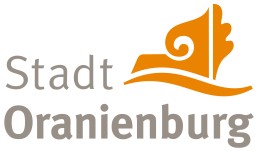
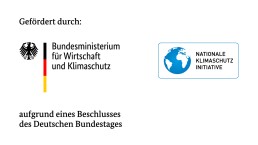
UfU and IASS publish Enabling Policies Report
19. Oktober 2022
UfU and IASS publish Enabling Policies Report
Practical proposals for the implementation of a fair energy transition
COBENEFITS Project
Term
03/2017-02/2020
Cooperation partners
Institute for Advanced Sustainability Studies e. V. (IASS)
Renewables Academy AG (RENAC)
International Energy Transition (IET)
Commissioned by
Federal Ministry for the Environment, Nature Conservation, Building and Nuclear Safety (BMUB)
as part of the International Climate Initiative (IKI)
Contact
Franziska Sperfeld (e-mail: franziska.sperfeld@ufu.de)
The challenge of transformation
Today’s societies are facing enormous challenges as a result of advancing climate change and the associated transformation processes. In addition to the transformation of mobility and the structural change of other industries, the achievement of agreed climate protection goals depends above all on the success of the energy transition.
The fact that the energy transition requires a comprehensive transformation of our energy grids, electricity generation and storage, and thus naturally poses a challenge, is used by some stakeholders as an argument against the climate-friendly transformation of the energy supply. Wrongly: The Policies Report shows that the energy transition is not only worthwhile in climate terms, but also financially, socially and economically.
The energy transition has positive side effects
In the future, it will be of central importance whether the energy transition is designed to be socially fair. Only then can change lead to lasting acceptance among the population. In our COBENEFITS project, we have therefore investigated to what extent the conversion to a sustainable power supply through renewable energies has positive side effects on other economic and social sectors and how these can be used. For example, a rising share of renewable energy can lead to less air pollution, more energy security and future-proof jobs.
If the energy transition is accompanied by smart legislation and good policies, these positive side effects can be enhanced and fairly distributed among communities. A central finding of the project is: The co-benefits (and thus e.g. savings) mostly arise outside the department that is responsible for planning the energy transition and thus has an additional effort at the beginning. Therefore, it is essential that government institutions cooperate across administrative departments in the future.
The Enabling Policies Report
In order to be able to defend the energy transition against critical voices from within the own economy, policy areapolitics and society, it is of central importance for many countries to back up the above argumentation of positive side effects with scientific studies. This has been done in the COBENEFITS project.
The COBENEFITS Enabling Policies Report is the official final report of the project. It provides an overview of policy measures that have a high potential to fairly exploit the co-benefits of renewable energy in the power sector. The report summarises findings and recommendations from five COBENEFITS project years and more than 15 studies from more than 7 countries. As such, it is a practical tool for policy makers, researchers and policy advisors to think climate change mitigation and socio-economic development together in practice.
Infographics
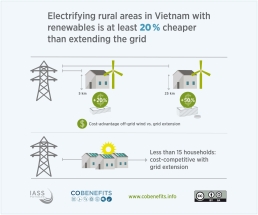
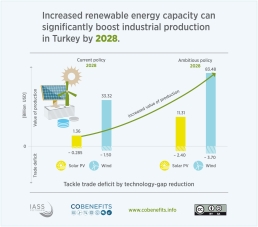
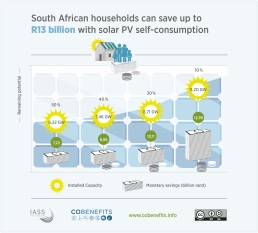
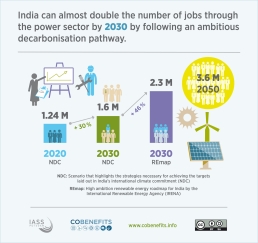
More infographics of the COBENEFITS project are available here: https://www.cobenefits.info/infographics-gallery-2/
EIA in comparison: Administrations need better software, platforms must become smarter!
23. September 2022
At the second workshop on formal digital public participation in our Aarhus-Strong project we looked at the different designs of EIA portals in Germany, Austria, Estonia and Slovenia. The Aarhus-Strong project aims to actively promote digital public participation in various EU Member States and to formulate national action strategies for the further development of the portals. To this end, UfU is cooperating with the Slovenian NGO Pravno-informacijski centre nevladnih orga-nizacij / Legal Centre for the Protection of Human Rights and Environment among others.
Public participation in infrastructural projects is an essential element of a modern democracy and is assured to EU citizens by the Aarhus Convention. In the digital age, but also in times of global pandemics, it is necessary to make information easily accessible digitally so that citizens can exercise their rights. The so-called EIA portals, in which information for large infrastructural projects such as motorways, power plants or factories are made availabe and the results of the environmental impact assessment (EIA) are listed, are crucial for this access to information. Ideally, citizens can comment on these projects and raise their objections at so-called public hearings.
In the second workshop, in addition to a competition for young professionals, the participation situation in Germany, Estonia and Slovenia was examined.
Germany & Austria
Even though the rights of the Aarhus Convention apply to all EU citizens, the degree of digitisation of EIA portals in the different EU Member States still varies considerably. Dr Gesa Geißler from the University of Natural Resources and Life Sciences in Vienna, examines digitisation trends for EIA portals in Germany and Austria. In her opinion, the use of social media as an information and discussion tool in infrastructure projects is desirable, but is still used too rarely. In addition, UfU has already established in past projects (Monitoring Report 2019) that the procedures are only insufficiently mapped in the EIA portals. In 2019, of approximately 1,900 new approval procedures for infrastructure projects in Germany, only 409 procedures were actually entered into the corresponding EIA portals. This corresponds to a rate of 21.5 percent.
Estonia
A good counter-example is provided by Estonia, which is considered a pioneer in digitisation efforts. Ms. Kadi Jette Tamjärv, Environmental Consultant from Estonia and member of the Estonian Association of Environmental Impact Assessment in Estonia, presented the handling in her country. Compared to most EU Member States, the information is prepared in a much better and more accessible way. Estonia can also look back on longer and above all positive experiences with digital and hybrid discussion meetings, which also enables citizens in rural regions to exercise their right to participation without long travel times. Examples like these and others will be included in the participation guide for environmental authorities in EU Member States, which will be developed in the course of the Aarhus Strong project.
Slovenia
Mr. Aljoša Petek from the Legal Centre for the Protection of Human Rights and Environment reported on the status in Slovenia. Here, the implementation of the Aarhus requirements is still very slow. Although the relevant portals have been set up, documents cannot be viewed or downloaded via the portals, but must be requested from the relevant authorities.
„European Innovation Lab“ competition
In addition to the exchange of experts on the participation situation in the different Member States, the winner of the “European Innovation Lab”, a competition organised as part of the Aarhus-Strong project,was awarded. The aim of this competition was to involve young people with digital experience and different professional backgrounds in the design of participation platforms of the future and to encourage them to develop new approaches. Ms Freia Antonia Weiß took first place with her model “Discourse”. The student emphasised that EIA portals would only be accepted by the masses if there were sufficient opportunities for exchange between the participants. In most EU Member States, however, this is still a vision for the future.

Further procedure
In the next steps of the project, the situation of public participation in selected EU Member States will be examined in more detail on the basis of country reports and both “best” and “worst practices” will be identified. This will be followed by further expert exchanges and workshops , the results of which will be used to develop an innovative participation guide for environmental authorities in EU Member States.
Kick-Off workshop: European Innovation Lab - participants start with the drafts

20. May 2022
The Kick-Off workshop for the “European Innovation Lab” took place on Friday, 20th of May 2022. Over the next three months, the participants of the contest will develop their designs for a modern participation platform for the Environmental Impact Assessment (EIA).
The European Innovation Lab is a competition for young people who use their technical and digital expertise to make participation more citizen-friendly. The contest is based on the “digital formal public participation in environmental matters in the European Union”. When large infrastructure projects (motorway, power plant, factory etc.) are planned in an EU member state, a so-called Environmental Impact Assessment (EIA) is usually required. In other words, the project is examined for its effects on the environment, humans and animals. The EIA thus serves as an instrument of environmental precaution. EU citizens have the right to inspect the results of the EIA and, under certain criteria, to raise objections and even to take legal action against the project.
However, these rights can only be exercised if access to this information is made easy and barrier-free. The COVID-19 crisis is not the only reason why it is important that citizens can easily access information on an EIA digitally. Unfortunately, this is currently not the case: the different portals of the EU countries are not uniformly designed, difficult to find and some portals are only available in the national language.
In order to further develop these portals and to improve the quality of citizen participation, UfU has integrated a competition for so-called “young professionals” from all EU member states into its project “Strengthening electronic participation rights in environmental protection in the European Union – at the same time further developing digital participation within the Aarhus Convention and the European Public Participation Directive (Aarhus-Strong)”. The task of the participants is to develop ideas for the design of a platform that meets the requirements and objectives of modern digital public participation.
The Kick-Off Workshop
In the Kick-Off workshop, the participants were introduced to the topic with exciting presentations and had the opportunity to develop an awareness of the problem and exchange their initial ideas with the help of design thinking methods. Elisa Lironi, Programme Director at the European Citizen Action Service (ECAS) gave a presentation on the potential and challenges of digital democracy in Europe. Louisa Hantsche, Project Manager at UfU e. V., introduced the participants to the legal framework and requirements for EIA portals and public participation, and Robert Bjarnason, President and co-founder of the Citizens Foundation in Iceland, shared his knowledge on the opportunities and challenges of designing digital participation platforms.
The participants now have until 31st of August 2022 to develop their own concepts for a digital participation platform. A jury of experts will select the winning concept. At the second workshop on 16th of September 2022, the participants will have the opportunity to present their concept to an interdisciplinary audience of experts. The highlight of the event will be the award ceremony.








